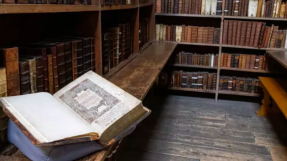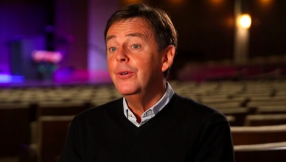
Trust in the media is in sharp decline. What was once a cornerstone of democratic society is now viewed with suspicion by many.
Across the UK, 22 local newspapers have closed in the past two years alone, marking a significant retreat of regional journalism from the public square.
The South London Press, after 160 years in print, ceased publication in May. Other closures include the Brighton Indy, North Liverpool Champion, Highland News, and Times of Tunbridge Wells - each one a familiar name to its community, now silenced.
The rhythm of the daily or weekly paper landing on the doorstep has been replaced by an endless scroll of updates on screens. For younger generations especially, social media has become the primary source of breaking news and opinion.
This shift has been as swift as it is profound. The traditional influence of press barons has waned, overtaken by a new class of tech entrepreneurs who not only control platforms but increasingly shape the narratives that flow through them. The power to inform, to influence, even to mislead, no longer lies with a few editorial offices but in the hands of vast algorithms and decentralised voices. Many of these voices are unaccountable, unchecked, and driven by incentives far removed from journalistic integrity.
As Christians, we are right to pause and ask what this means. Is this simply progress, or does it represent a deeper loss - one with spiritual and moral implications? What role, if any, should we play in engaging with, supporting, or challenging the media environment that now surrounds us? More fundamentally, how do we discern what is true when trust is so fractured?
The digital transformation has delivered both blessing and burden. On the one hand, we now receive news in real-time, free from the constraints of print deadlines. The immediacy can be empowering - allowing people to respond swiftly to crises, amplify marginalised voices, and connect across borders.
Yet this same immediacy also brings volatility. In the absence of careful editorial oversight, rumours and misinformation spread rapidly. If the vacuum created by the demise of local and trusted journalism is not filled with thoughtful, accurate reporting, it will be filled - by anyone, or anything, at all.
What once took a team of editors and reporters is now often reduced to a single viral tweet. The authority of truth, once tethered to professional standards and public accountability, has been scattered. In its place, we often find competing narratives shaped by ideology, celebrity, or profit. The age-old question - what is truth? - has returned, not as a philosophical enquiry, but as a daily struggle in the digital noise.
Journalism has long served as a public good, when done well. It informs citizens, scrutinises power, and records the first draft of history. But it now faces a crisis - not only of economics but of credibility. The proliferation of misinformation, often dressed in the clothing of legitimacy, has made it increasingly difficult for readers to separate fact from spin. In such a climate, the danger is not just confusion but cynicism, a resignation that truth itself is no longer accessible or even necessary.
Yet the Christian tradition holds truth in high regard. We worship a God who is truth, who calls His people to speak truthfully and to live with integrity.
If we are to be faithful witnesses in this cultural moment, then our relationship with media cannot be passive. We must become discerning participants - asking careful questions of the stories we consume and share, resisting the pull of outrage or convenience, and holding ourselves to higher standards of accountability.
This does not mean retreating into echo chambers of our own. It means taking seriously the call to love our neighbour, which includes bearing witness to the truth in the public square. It means recognising that good journalism - when it exists - is a form of service, one that aligns closely with the Christian call to justice, to compassion, and to light in dark places. Supporting such work, whether through our readership, our giving, or our advocacy, is not just a civic duty but a moral one.
We should also recognise that Christians are not immune to the trends of the wider culture. Our media consumption habits, our online behaviour, and our willingness to share unverified claims all contribute to the shape of public discourse. It matters what we read. It matters what we repost. We are either helping to clarify or to confuse; to build up or to tear down. The digital ecosystem is not neutral, and the way we navigate it must be shaped by the same virtues we apply to other areas of life - patience, humility, truthfulness, and grace.
There is a danger, too, of disengagement. The loss of trust in media can lead to apathy, to a retreat from public conversation altogether. But if Christians withdraw from the cultural conversation, others will fill the space. Silence, in such moments, is not neutrality. It is abdication. We are called to be salt and light, not spectators.
This may mean encouraging younger Christians to enter the field of journalism with a sense of calling - to report truthfully, challenge injustice, and hold institutions to account. It may mean churches hosting media literacy workshops or equipping congregants to navigate misinformation. And it certainly means supporting news outlets - local and national - that make good faith efforts to uphold truth, even when we do not always agree with every editorial line.
The decline of legacy media and the rise of decentralised digital commentary is not inherently a tragedy. But it is a moment of reckoning. The question is not whether the media landscape will change - it already has - but whether we as Christians will rise to the challenge it presents. Not merely as critics or consumers, but as stewards of truth in a noisy and distracted world.
In doing so, we honour the God who sees clearly, who speaks truthfully, and who calls His people to do the same.
Duncan Williams is outreach director for the Christian Free Press and has worked for Son Christian Media here in the UK and Recovery Network Radio in the United States. He is an ordained minister and a long-term member of Christians in Media. He provides content and syndicated news for regional publisher www.inyourarea.co.uk













